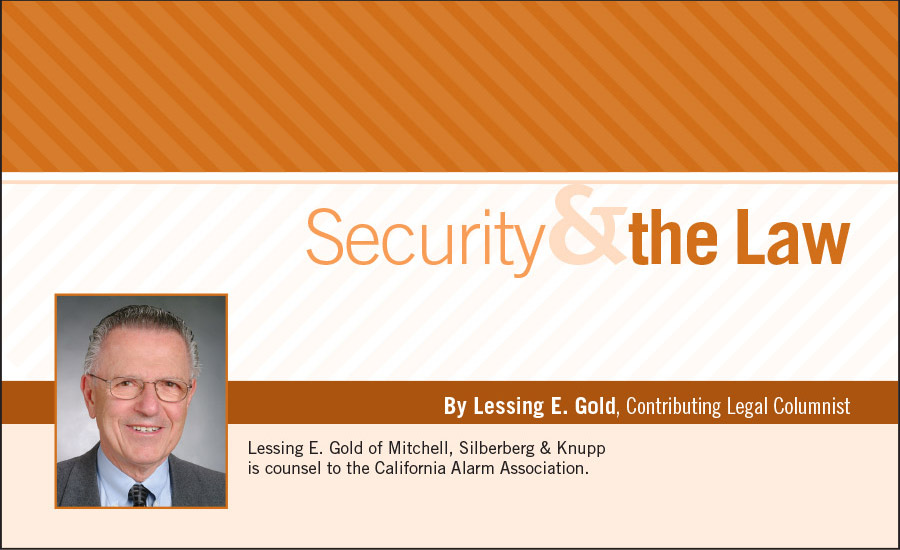There was great case out of the state of New York in which the plaintiff alarm company contracted with the defendant to inspect and maintain the defendant’s fire alarm system for an initial period of five years. Approximately six months into the contract, the defendant terminated the contract. The plaintiff alarm company commenced an action alleging that the defendant, by its premature termination, breached the contract. The alarm company pursued damages under the contract’s liquidated damage clause.
Prior to any discovery, the alarm company moved for summary judgment on the complaint. The defendant opposed the motion and moved for summary judgment dismissing the complaint, or in the alternative, limiting the plaintiff’s damages to the unpaid portion of the first year of the contract.
The Supreme Court of New York denied both the plaintiff’s and the defendant’s cross motion. The alarm company appealed from the order denying its motion. The Appellate Division of the Supreme Court reversed the decision of the lower court, stating that contracts are to be construed as the parties intended. When the contract is in writing, the best evidence of what the parties intended is what they said in the writing. Thus, a written agreement that is complete, clear and unambiguous on its face must be enforced according to the plain meaning of its terms.
In support of its motion for summary judgment, the alarm company submitted the contract, which clearly stated that it was for an initial five-year term, but could be terminated by either party thereafter. The alarm company also submitted evidence that it had performed its obligation under the contract, that the defendant breached the contract by prematurely terminating it, and that the contract itself provided for the measure of damages.
In opposition to the plaintiff’s showing of entitlement to judgment as a matter of law, the defendant failed to raise a triable issue of fact and further the defendant’s contention that the alarm company’s motion was premature and is without merit. Accordingly, the Appellate Court held that the Supreme Court should have granted the alarm company’s motion for summary judgment on the complaint. The matter was therefore reversed and summary judgment was granted in favor of the alarm company.
Normally we suggest to clients that they do not pursue the loss of profit, but they attempt to settle, because usually — particularly in residential cases — the defendant will file a cross complaint against the alarm company. In this case, however, a substantial amount of money was involved, it was a commercial collection, and the perseverance of the alarm company paid off. To pursue this type of action sets a precedent and allows the company to get its benefit of the bargain; and as stated by the judge in the Appellate case, contracts are to be construed as the parties intended. When the contract is in writing the best evidence of what the parties intended is what they said in that writing.
Author’s note: Hats off to David Kleinman, the attorney who represented the plaintiff in the action, for a job well done.




